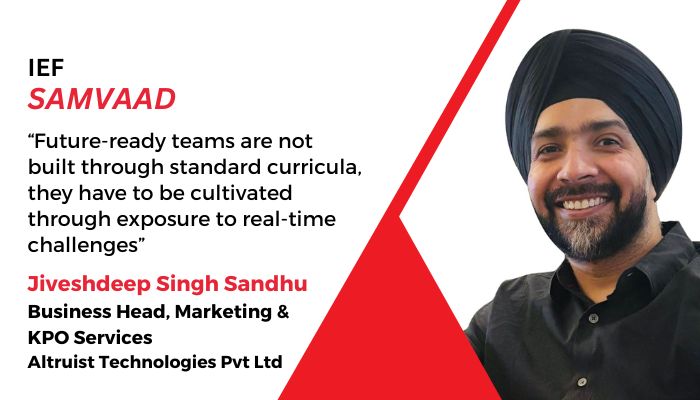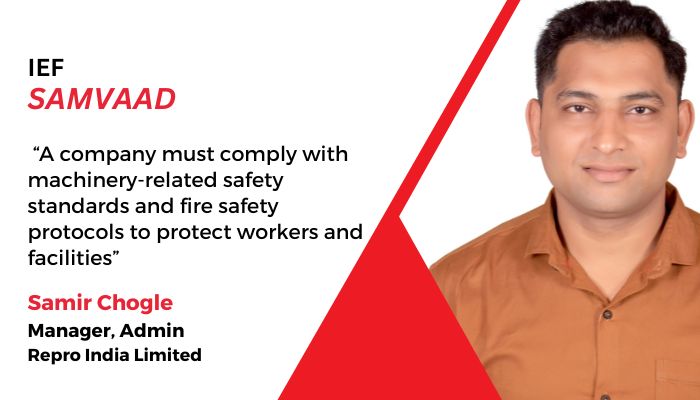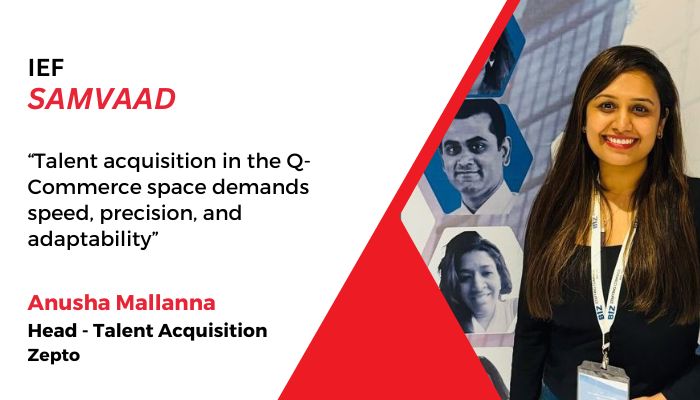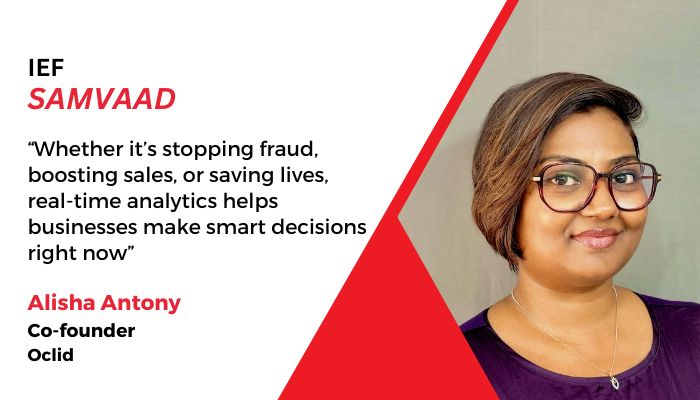Kishore Sambasivam, CHRO – OnMobile, is of the opinion that talent management practices and organizational culture are unique to companies and can’t be emulated
Q. Please tell us something about yourself. What have been the key highlights in your career?
I have over two decades of experience across the HR function including a stint in Management Consulting. I completed my graduation from NIT Warangal and MBA from XLRI, Jamshedpur. Currently, I’m the VP – HR & CHRO, OnMobile. I have worked earlier in Renault Nissan, IBM, HP, SAP, TCS and Tech Mahindra.
Q. Any awards/achievements that you would want to share with us?
I have had the opportunity to be a part of the initial management consulting team at TCS. I was selected to be part of a global HP HR team based out of Houston, Texas during which I also obtained a Global Mobility Specialist Certification from Worldwide ERC. I also had the privilege of being part of the core team that enabled IBM India to receive PCMM level 5 certification in 2003 and the SAP India HR team that achieved GPTW top ranking
Q. What different approach did you adopt when you moved from leading C&B to becoming CHRO? How did you prepare yourself to manage this transition?
Some of my earlier stints in HR were in generalist roles and hence I did have an idea of things in store before taking up this role. However, the biggest change is the fact that you need to take a balanced view keeping in mind all elements of the function and not just focusing on one dimension. Moreover, given that there are already specialists in the team one needs to ensure that their inputs are respected and my views are not imposed. Another key factor is to maintain a good balance of breadth and depth in terms of awareness / involvement across the various sub-elements of the role. You need to get involved where necessary but ensure you retain a bird’s eye-view of what’s going on.
Q. What’s your view on the mega global trends in HR?
The HR function is no longer expected to just administer the policies, it is expected to work closely with the business leaders to align HR strategy to the overall business strategy. The emphasis on talent cannot be overstated, it is becoming the biggest differentiator and one area that cannot be replicated easily across companies. You may emulate policies, pay practices, facilities etc. but your talent management practices, organizational culture are unique and HR being responsible for these aspects raises expectations. HR is also not immune to the technological changes impacting business – usage of analytics, AI to assess and enhance employee engagement, assess competencies and formulate strategies is gaining traction. Bots have invaded the workplace and the HR / ER business partner need not support transactions as they used to before. Their focus should be more on employee experience enhancement.
Q. What’s the trends specific to your area of interest – C&B?
Labor cost is getting more attention as companies face squeeze on margins and challenges on productivity. Hitherto generous or populistic practices are being abandoned and we’re seeing a more rational and realistic posture as far as C&B is concerned.
Q. Is the Total Rewards philosophy too undergoing change globally?
More and more companies are decentralising the C&B function while only the core elements are being dictated from the corporate office. This ensures that the local management is fully empowered to fine-tune the HR strategy in line with local practices while aligning to a broad global framework. The emphasis is also to ‘variabilize’ the employee cost as far as possible – in difficult times companies resort to increasing variable pay so that it doesn’t create long term commitment. There is also move to customise and flex employee benefits to cater to unique employee requirements – this means that the spend on benefits is stretched fully and there are minimal white spaces.
Q. How does C&B impact the profitability of an organization?
It would not be an understatement to say that C&B impacts the viability of an organization. In most cases employee costs account for more than 60% of the variable costs of an organization – given this situation, C&B policies have a huge impact on an organization’s ability to hire, mobilize and reward talent across various elements of the employee life-cycle. A simple but rather overlooked topic is the science that goes into designing pay structures. As most companies possess talent with heterogeneous skills, the way pay structures are designed and implemented can impact the labor costs by a margin of 15-20%. This number can vary across countries and sectors but is a safe assumption as far as the Indian context is concerned. In a scenario with razor thin margins, one can imagine a 15-20% impact on labor costs – this is a vastly under-explored lever in organizations.
Q. Does the value added by the C&B team ever gets recognized or the professionals working in this domain are unsung heroes?
Yes, they do get recognized. Organizations which realize the value tend to appreciate their value much better.
Q. How can HR help create world class organizations in today’s context of evolving world of jobs?
HR needs to keep its ears to the ground, understand business context, local labor market, global trends and employee aspirations / mindsets. If they constantly keep reviewing their strategies, assess their impact on key business metrics and don’t fail to ask the right questions can support in today’s context. It’s important to unlearn and be open to new ideas, counterintuitive facts and progressive thoughts.
Q. In the context of the future of work, what new roles do you see emerging in the HR function? How should HR professionals prepare themselves to remain relevant?
HR technology, talent ambassadors are two roles that would gain prominence in the current context. As mentioned in earlier answer it is important to stay curious and ask the right questions. It’s better to ask questions that may appear dumb than do things based on incorrect assumptions which could boomerang later.
Q. How prepared are the members of your professional fraternity to be able to meet the future expectations and rising demands of the business leaders?
It’s a good sign that there are many HR professionals that network frequently, are part of professional bodies such as SHRM, Worldatwork, CII etc that take part in shaping the HR agenda. Involvement of business leaders in the talent agenda, shareholder oversight and social media are all additional factors that retain spotlight on the people agenda and hence, HR cannot afford to be complacent.
Q. How does one ensure quality of hires? Today, we see people everywhere but employability remains elusive, why?
There’s considerable action in the academia-industry front now. There are so many tie-ups/relationships/finishing schools on the horizon now whose only mandate is to ensure employability of the workforce that’s entering the workforce every year. National bodies such as CII and NSDC are also endeavoring continuously to upgrade the skills profile of the population that we should see a lot more progress on this front now. Companies should not just be consumers in the talent space, they need to proactively work with academia and government to streamline the courses, pedagogy etc. to suit industry needs. It shouldn’t be viewed as a spend or a drag on resources but a foundation laying process to create a better brand for India Inc. as a destination for more investment.
Q. How do you keep yourself professionally relevant? What’s your success mantra?
I like to read on macro level topics, global trends in order to have a big picture. I am also passionate about the power of HR to influence the business agenda – I practice inclusiveness as a management style. HR should never try to play the role of a police, it has to partner effectively with business – people agenda is not a preserve of the function it has to be a joint effort between HR and business. This has always been my conviction.
About Kishore Sambasivam
VP – HR & CHRO, OnMobileKishore Sambasivam has over two decades of experience across the HR function including a stint in Management Consulting. He completed his graduation from NIT Warangal and MBA from XLRI, Jamshedpur. He is currently the VP – HR & CHRO, OnMobile. He has earlier worked in Renault Nissan, IBM, HP, SAP, TCS and Tech Mahindra.






